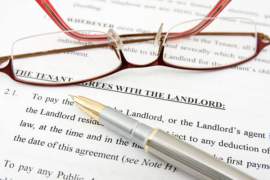
Florida Tenant Rights

Quick Guide to Florida Tenant Rights
What are FL Tenant Rights?
Florida tenant rights are fairly common to other states, but there are always several tenant laws that vary from state to state. FL tenant rights can be found under Chapter 83 of Florida Statutes, and tenants should be aware of their rights and obligations before entering any lease. Tenants should also know their Florida Tenant rights when living in the premises and after leaving the premises.
Agreement and Deposit Rights
Under Florida law, a landlord can offer either a written or oral agreement. Most landlords offer written leases, but not at all. However, all notices from the landlord must be in writing and either delivered personally or by mail.
Section 83.49(a) of Florida Statutes (F.S.) offers information on Florida tenant rights concerning a security deposit. If a tenant vacates the unit for termination of the lease, the landlord must:
1) Return the deposit within 15 days if they are not filing a claim.
2) Give the tenant proper notice within 30 days detailing how much security deposit was kept with specific reference to why. If there is no notice mailed within 30 days, a landlord cannot seek compensation for damages through the security deposit.
Tenant Responsibilities
Florida tenant rights come with tenant responsibilities as well. Under Section 83.54 of F.S., a tenant is responsible for the following during their occupancy of the unit:
1) Following all building and health codes while keeping the unit clean and sanitary
2) Removing garbage from the unit and place it in proper trash/recycling bins
3) Keeping all toilets, sinks, and other plumbing fixtures in good repair
4) Acting in an appropriate manner and making their peers act in an appropriate manner while not disturbing the peace of other tenants as well
5) Operating all electrical, plumbing, sanitary, heating, air-conditioning and other equipment in a reasonable manner
Entering the Premises
Landlords and tenants both have rights concerning the entrance into the unit. A landlord may enter the premises under the following conditions:
1) If they have given reasonable notice (12 hours prior to entry between 7:30 a.m. and 8:00 p.m.) to the tenant
2) If a tenant is away from the premises for at least one-half the time period of each rental payment period and the tenant gives consent, unreasonably withholds consent, or if there is an emergency.
A person also has FL tenant rights in light of an eviction. Until a court has mandated a tenant leaves within a certain time period, a landlord cannot for a tenant out by:
1) Shutting off certain utilities, even if the service is paid for by the landlord.
2) Changing the locks or using a device to block the entrances.
3) Removing outside doors, locks, roof, walls, or windows except for purposes of repair.
4) Removing the tenant’s personal property from the unit
If any of the conditions listed above occur, a tenant may sue a landlord for three months of rent or for damages that equal the same amount. A landlord is responsible for court costs and attorney fees in Florida if they enact in a manner listed above as well.



















